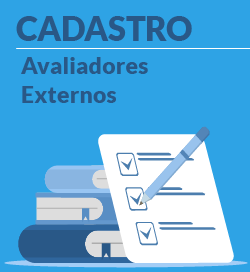EMPOWERING OLDER ADULTS WITH GENERATIVE AI TO CO-CREATE PUBLIC POLICIES THROUGH ACCESSIBLE AND GUIDED PROPOSAL TOOLS
Resumo
Background: The aging population is increasingly recognized not only as a group to be served by public policies but also as active contributors to their formulation. However, older adults often face barriers when attempting to participate in institutional processes, such as drafting proposals for participatory budgeting or submitting suggestions to public policy platforms. These challenges arise from multiple factors, including digital exclusion, cognitive overload due to the complexity of bureaucratic language, and unfamiliarity with new legal or technical norms. Generative Artificial Intelligence (AI), particularly large language models (LLMs), offers an innovative pathway to reduce these barriers by acting as personalized assistants that can guide and support older adults in formulating impactful public policy proposals. Objective: This work explores the use of generative AI to enhance the political participation of older adults by facilitating their engagement in the elaboration of public policy proposals. The goal is to demonstrate how AI tools can be designed to support autonomy and inclusion, enabling elderly citizens to contribute with their lived experience and knowledge through structured digital environments. Methods: The approach involves developing the requirements for an AI-powered assistant based on LLMs that interacts with users through natural language, transforming their ideas into structured policy proposals. The assistant guides users step-by-step through a protocol inspired by existing participatory platforms, such as participatory budgeting portals. It explains each section (problem definition, objectives, beneficiaries, estimated costs) in plain language, offers suggestions based on previous proposals, and recommends relevant legal or regulatory references drawn from municipal or national legislation. The assistant should also provide summaries and reformulations in accessible language and integrates support for voice interaction and visual accessibility. Results and Expected Outcomes: By developing the requirements for this solution, the project aims to demonstrate that generative AI can reduce cognitive, linguistic, and technical barriers for older adults. The tool not only simplifies the writing process but also empowers users by valuing their input, fostering greater civic engagement, and creating channels for more inclusive policy dialogue. Expected outcomes include higher rates of elderly participation in digital civic platforms, improved quality of proposals submitted by older adults, and enhanced sense of digital autonomy. Conclusion: Generative AI holds great promise as a facilitator of inclusive democracy. When designed with accessibility and empathy in mind, such technologies can act not as substitutes for human action, but as bridges for those traditionally excluded from digital and political processes. In the case of older adults, AI becomes a strategic ally in ensuring that their voices are not only heard but transformed into concrete contributions for a more just and age-inclusive society.
Downloads
Publicado
Edição
Seção
Licença
Copyright (c) 2025 Revista Diálogos em Gerontologia

Este trabalho está licenciado sob uma licença Creative Commons Attribution-NonCommercial 4.0 International License.
A Revista oferece acesso livre e imediato ao seu conteúdo, em consonância com o princípio de que tornar o conhecimento científico amplamente disponível contribui para a democratização do saber. Os(as) autores(as), ao submeterem seus trabalhos, declaram-se detentores(as) dos direitos autorais e autorizam seu uso livre, desde que sem fins comerciais, com obrigatoriedade de atribuição de crédito apropriado à autoria original. Os conteúdos podem ser lidos, baixados, copiados, distribuídos e impressos, conforme os termos da licença Creative Commons Atribuição-NãoComercial 4.0 Internacional (CC BY-NC 4.0).





